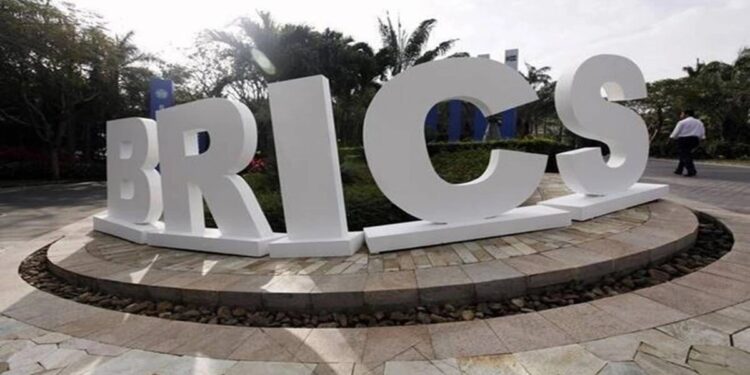Ahead of the BRICS summit in August in Cape Town, South Africa, the foreign ministers of the group are meeting from June 1-2 to firm up the agenda for the summit. Issues related to the expansion of the grouping, the ongoing Russia-Ukraine war as well regional and international issues of mutual concern.
External Affairs Minister Dr S Jaishankar without making any exception is likely to stress on the need for all to respect sovereignty and territorial integrity of States.
The FMs meeting in Cape Town is being hosted by Naledi Pandor, Minister of International Relations and Cooperation later this week and it comes ahead of the BRICS summit from August 22-24 which will be hosted by President Cyril Ramaphosa of South Africa.
India and China
External Affairs Minister Dr S Jaishankar will travel to Cape Town later this week to participate in the BRICS foreign ministers’ meeting and a bilateral meeting with his Chinese counterpart Qin Gang is on the agenda. This will be his third meeting this year ahead of the SCO and G20 Leaders Summit and they are expected to discuss the Chinese demand for a no patrol zone at Depsang Plains along the Line of Actual Control. In April during the 18th round of Corps Commander level talks, China insisted for a no-patrol zone with 15-20 km width in Depsang Plains and this was rejected by the Indian side.
Both ministers are also expected to discuss the withdrawal of the frontline troops from the remaining friction points along LAC in eastern Ladakh. Jaishankar during the previous meetings has made it clear to the Chinese counterpart that the normalcy could not be restored without completely resolving the standoff along the LAC disengagement of troops from the remaining face-off points and removal of additional troops from “depth areas.”
Expansion of the grouping
Around 20 countries have sent in their applications requesting to join the group including Argentina, Iran, Algeria, Bangladesh, Bahrain, Egypt, Venezuela, Indonesia, Belarus, Saudi Arabia, Zimbabwe, Nigeria, Thailand, Sudan, Senegal, Uruguay, Tunisia among others.
It is noted that all these countries will have to wait for the BRICS members to agree on the fundamental concept of expanding the group.
In a very short time, BRICS has established itself as the most formidable organisation of the Global South. An organisation which its critics dismissed as ‘an acronym without substance’ has become the leading organisation of the southern hemisphere.
“Its credibility can be judged by the fact that nearly 20 countries have shown interest in joining the organisation. Interestingly, some of the countries, such as Turkey and Saudi Arabia, have had close ties with the US,” observes Prof Rajan Kumar, School of International Studies, JNU.
Why is this significant?
The fact that they want to join BRICS demonstrates two things in particular: they recognise this organisation’s growing importance and are conscious of the ongoing global transition where BRICS countries have become leading players in global governance. BRICS has surpassed the G7 GDP calculated in purchasing power parity terms. According to Acron Macro Consulting Firm of the UK, BRICS’ share was 31.5 per cent, compared to 30.7 per cent of the G7 in PPP terms.
“In the upcoming BRICS Foreign Ministers’ meeting and later the Summit in South Africa, the issue of new membership is likely to be discussed. Since its inception in 2006, and barring the inclusion of South Africa in 2011, BRICS has not included any new member. But with the emerging bipolar politics, China and Russia support including new members. BRICS has not devised any norms or rules for membership. However, with the growing interests of other countries, it would be better to discuss modalities of including new members,” Prof Rajan explains.
Will India support the expansion?
New Delhi has not made up its mind on expansion, but it may not be averse to including friendly states such as Saudi Arabia, Iran, UAE, Indonesia and Argentina. However, according to Prof Rajan, “New Delhi fears that its influence and privileged status would be diluted if other regional powers were included. Earlier, it had objected toBeijing’s proposal for BRICS’ expansion. New Delhi has the following concerns: dilution of its regional influence, difficulty in decision making and the group losing focus, and stronger influence of China if its friends are included.”
Trading in Local Currency
Besides membership, the BRICS meeting in South Africa will also discuss the issue of trading in local currency or developing mechanisms which can bypass dependence on the dollar. The freezing of Russian assets has sent the wrong message to the outside world. China, Saudi Arabia, India, Brazil and many other countries have initiated the process of trading in other currencies. New Delhi has signed agreements with more than a dozen countries. Russia’s two thirds of trade with China happens in local currency. The BRICS can develop mechanisms to facilitate trade in alternative currencies. However, it is unlikely that the BRICS countries would agree on developing a BRICS currency, a proposal floated by the Brazilian President.
The Russia-Ukraine war has raised the credibility of the BRICS. None of the member-states condemned Russia’s invasion, and none complied with Western sanctions. The BRICS saved Russia from political and economic isolation. The Russian economy would have collapsed if BRICS members had complied with Western sanctions. BRICS became the leading voice of the Global South in the Russia-Ukraine war. Many of the Global South’s smaller states escaped Western pressure because the powerful BRICS countries took a neutral stance.
“It must be noted that BRICS countries are not opposed to every aspect of liberal international order. But they want to hedge their risks against Western idiosyncrasies,” Rajan opines.
EAM met his Russian and American counterparts
Jaishankar met Russian ambassador Denis Alipov last Thursday. At the BRICS FM meeting his Russian counterpart Sergey Lavrov will be present.













